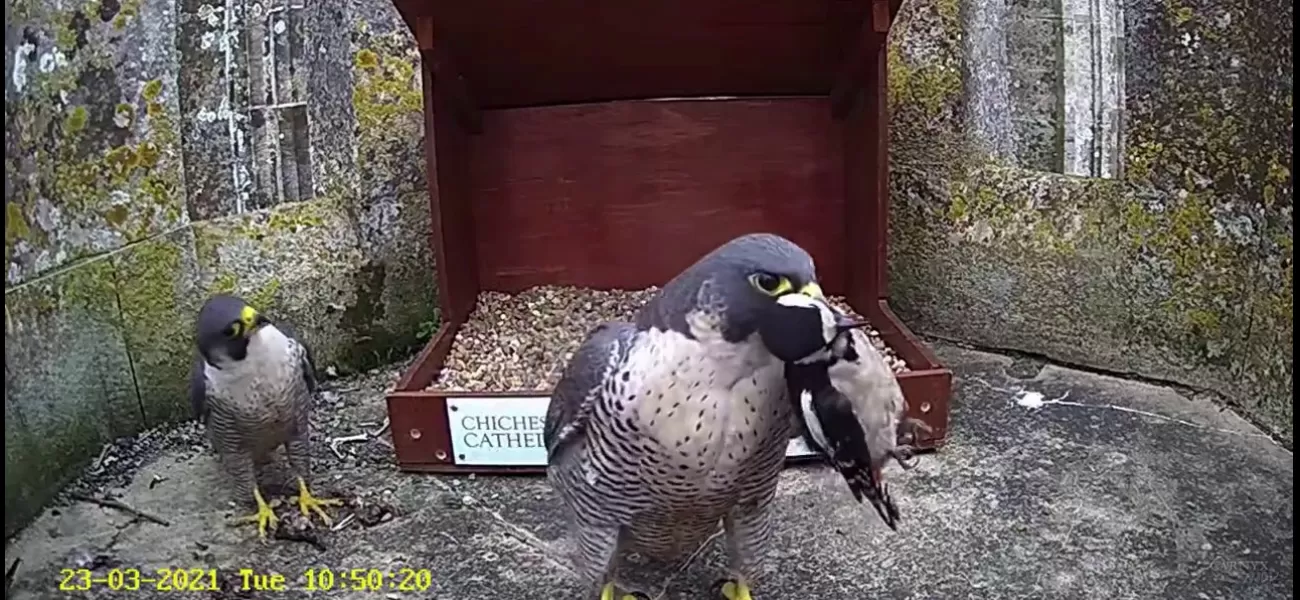The falcons of London have been struggling for food since the pigeons have gone away due to the lockdown measures. As a result, they have been forced to switch to eating parakeets.
During the lockdowns, there were fewer people outside so pigeons left the city. To make up for their absence, peregrine falcons began preying on starlings and parakeets instead.
February 27th 2023.


(Image Source: https://metro.co.uk)
The authors of the recent study declared that their discoveries demonstrate how modifications in human behaviour can affect London's raptor population. During the pandemic, fewer pigeons were drawn out as fewer people were outdoors, which meant that their predators needed to search for other sources of food. The research found that falcons turned to starlings and parakeets as an alternative. Nonetheless, the study also reported that there were no perceptible transformations in the feeding habits of falcons in other large cities. The academics from King's College London and University of Bristol who wrote the report stated that their findings demonstrate the vulnerability of the raptor population in the capital to being affected by changes in human behaviour. They utilized online live-streams to observe over thirty-one falcon nests in almost thirty cities throughout the nation over a period of three breeding seasons. Dr Brandon Mak of King's College London said: ‘Our results indicate that peregrines in larger, highly urbanised cities like London may be more dependent on, and hence more vulnerable to changes in, human activities which support their prey populations, particularly feral pigeons.’

(Image Source: https://metro.co.uk)
The authors of the recently conducted study highlighted how alterations in human conduct can have an impact on London's raptor population. It was revealed that during the pandemic, due to the lack of people outdoors, the number of pigeons decreased, prompting the falcons to feed on other birds such as starlings and parakeets. However, the feeding habits of falcons in other major cities did not experience any alteration. The authors of the report noted that the raptor population in London is very sensitive to the alterations in human behaviour. The research was done by utilizing online live-streams to observe over 31 falcon nests in around 30 cities in the country during three breeding seasons. Dr Brandon Mak from King's College London remarked that the findings of the study point out that peregrines in larger cities such as London are more vulnerable to changes in human activities which help sustain the prey population, particularly feral pigeons.

(Image Source: https://metro.co.uk)

(Image Source: https://metro.co.uk)
[This article has been trending online recently and has been generated with AI. Your feed is customized.]
[Generative AI is experimental.]
0
0
Submit Comment





